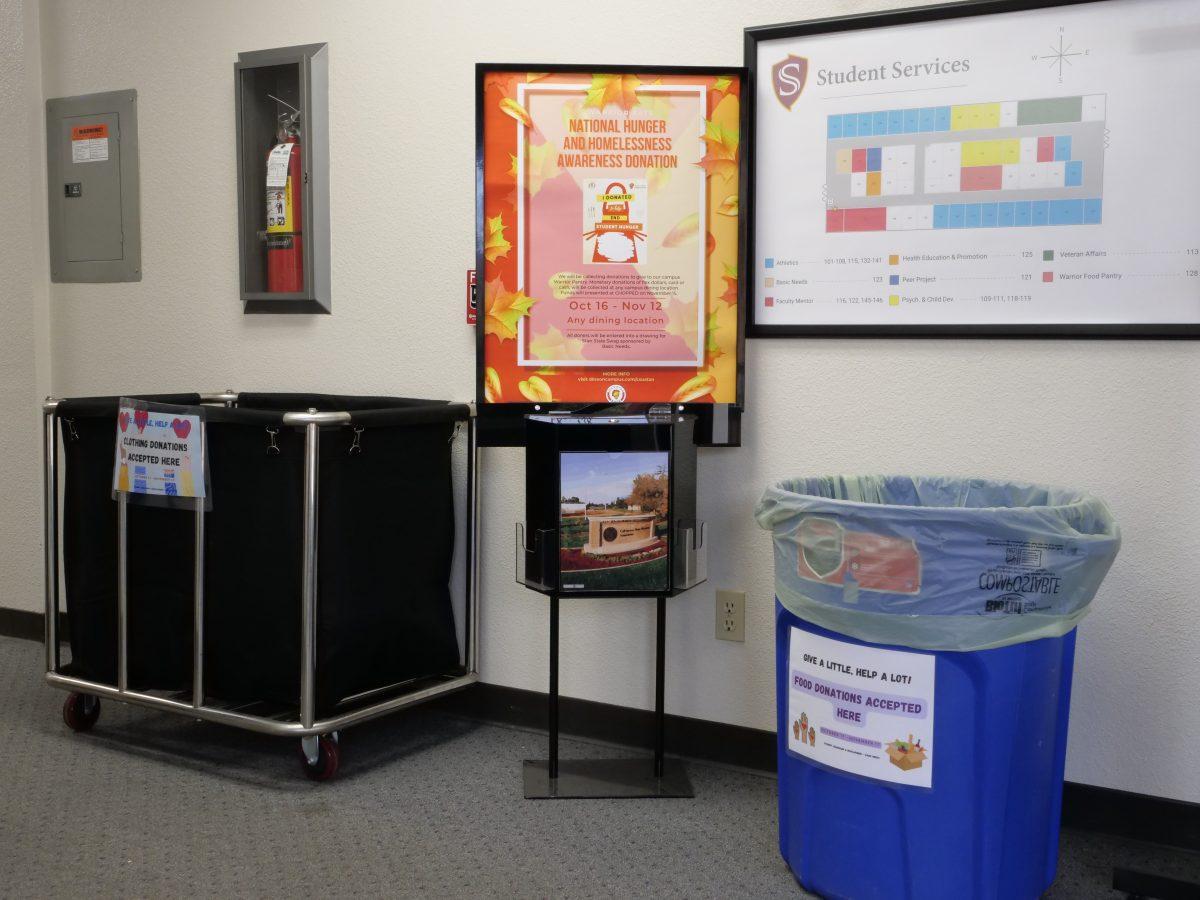During a pandemic, a simple cough or a sneeze is enough to turn heads and cause worry when out in public. Many people, including Stan State students, are taking extra precautions to stay healthy as the winter weather approaches. With this cold weather comes not only the holidays, but also flu season. In order to finish the semester strong, students may have to take extra precautions if they are concerned about catching the flu.
The Centers for Disease Control and Prevention (CDC) defines the flu as “a contagious respiratory illness caused by influenza viruses that infect the nose, throat, and sometimes the lungs. It can cause mild to severe illness, and at times can lead to death.” Many students are familiar with the flu and have pushed through it at some point in their scholarly career in order to stay on top of everything. With classes already proving to pose an additional challenge with their online format, students may prefer to not add any additional difficulties by falling prey to the flu.
The symptoms of the flu can range from person to person but typically may include fever, cough, stuffy or runny nose, muscle and body aches, headaches, fatigue, vomiting, and diarrhea. None of these symptoms will make a busy semester any easier so it is understandable why students may be concerned now that this year’s flu season has arrived.
While the flu season is ramping up, students concerned about getting sick can still take preventative action by getting a flu shot. “The first and most important step in preventing flu is to get a flu vaccine each year. “[The] Flu vaccine has been shown to reduce flu related illnesses and the risk of serious flu complications that can result in hospitalization or even death.” According to the CDC.
Turlock pharmacist Hung Chia shares why exactly getting a flu shot is so important. “It is very important to get a flu shot because the flu is a very contagious respiratory illness. Symptoms can be mild, and you have a higher chance of surviving a flu outbreak, but it also has the potential to be very serious for susceptible populations like the elderly, young children, and people with a weakened immune system.”
Chia elaborates that “Everyone over the ages of six months should typically get a flu shot each season. Pregnant women, caregivers, and elderly are just a few groups of individuals who may have a higher need to get a flu shot. The vaccination is effective for about six to eight months so you want to make sure you get it at a time where you will be protected for the winter months when the flu is more prevalent.”
Some students are already familiar with getting the yearly shot. Ruben Mascorro (sophomore, Business Administration) is no stranger to getting extra protection against the virus. “I’ve already gotten my flu shot this year. My job usually always provides it for free, so I figure why not get one.”
Daniel Hermiz (senior, Biology) is also ahead of the game in terms of getting a vaccination. “I normally get the shot each year. I already got my flu shot this year because it helps reduce my chances of getting the infection.”
While being proactive in order to stay healthy seems to be the trending logic behind getting a flu shot, not everyone will be choosing to get the vaccination for one reason or another. Luis Banuelos (sophomore, Finance) shares his reasoning behind taking a hard pass on the flu shot. “I never get a flu shot. I choose not to because I don’t like being poked by a needle. I heard that this year’s flu season is supposed to be pretty bad but nope, shots scare me.”
One point of concern for some, is the topic of side effects of getting the flu shot vaccine. John Zhang, a clinical pharmacist in Turlock, addresses the downsides to getting a flu shot.
“There are minimal! Sometimes there may be a slight injection site reaction. It is also important to know that very few people are actually allergic to flu shots. Egg allergies used to be a potential problem, but now there are flu shots made egg-free. Some people may experience malaise for a few days, but it is significantly better than getting the flu,” explains Zhang.
Whether students decide to get a flu shot or to pass on getting one, many businesses will be offering them regardless. Students can go to any Rite-Aid, Walgreens, CVS, or numerous other businesses to inquire about getting vaccinated. “There may be some associated costs at retail pharmacies, but the shot is often free with almost all insurances,” Zhang notes.
While there is no guarantee that any one person will or will not catch the flu this season, students will have a choice to add an additional layer of protection against catching the flu if they so choose. Regardless of their decision, we will hope for good health for all of the students looking to make it through this very unique semester.













